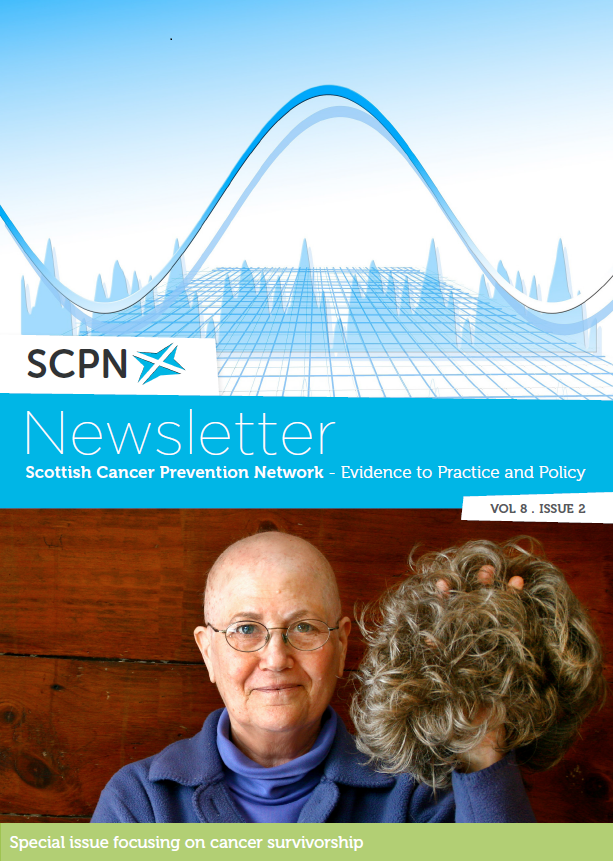
Have you seen these CSO funded studies?

02 May 17 |
CSO provides funding opportunities for researchers in Scottish Universities and Health Boards to undertake projects (up to £300k and three years) through two response mode research grant programmes covering the broad spectrum of applied health and care related research. Following the publication of the 2015 Scottish Government health and social care research strategy, CSO re-positioned its research grant programmes to place greater emphasis on relevance, importance, and potential impact on health in Scotland and on the translation of research findings into policy practice, either directly or by laying the foundations for larger definitive studies that can be supported by other UK health research funders. To support this, CSO contributes financially to the National Institute of Health Research (NIHR) to allow researchers in Scotland to access the four major NIHR research programmes (EME, HS&DR, PHR and HTA), which have no funding threshold and therefore can fund large definitive studies.
The two CSO programmes are:
- Translational clinical studies research programme – for research aimed at improving treatments and / or diagnostic approaches for conditions of clinical importance to the population of Scotland.
- Health improvement, protection and services research programme – for research aimed at improving or protecting population health or improving the quality, safety and/or effectiveness of healthcare in Scotland.
CSO also invests through NHS Research Scotland in infrastructure to support research studies in Scotland:
- Clinical research networks and specialty groups to support recruitment to trials;
- SHARE a register of people interested in participating in health research studies that can be used to recruit to studies;
- Clinical Research Facilities, Biorepositories, and Imaging Capability;
- Health service data linkage and access.
For more information go to: http://www.cso.scot.nhs.uk/funding-2/.
A pilot study of the feasibility and patient-related outcomes of performing a walking intervention in patients undergoing treatment for rectal cancer – The REx Trial
Moug SJ, Mackay G, Anderson AS et al.
Why is this paper important?
This is the first RCT to assess feasibility of performing a walking intervention in patients with rectal cancer in a prehabilitation setting. Patients with rectal cancer undergoing chemo-radiotherapy (CRX) followed by potentially curative surgery in Greater Glasgow and Clyde (GGC) were approached from August 2014 to March 2016. Each participant underwent baseline testing with physical tests and psychological/ quality of life questionnaires. Randomisation was to either the intervention group (progressive walking programme for 12-17 weeks) or control group (usual care). Follow-up testing was undertaken prior to the planned surgery date.
High recruitment and retention rates alongside indicative results support the development of a fully powered trial to measure the effects of the PA intervention in patients with rectal cancer.
Main take home messages
All patients with rectal cancer undergoing CRX should be considered for a walking programme prior to starting their CRX, starting at the time of diagnosis and lead by a designated pre-habilitation team. This structure is already in place in the NHS. Pre-habilitation could be a developing role for the Enhanced Recovery after Surgery (ERAS) nurse who already counsels patients with rectal cancer peri-operatively about diet, smoking, alcohol, weight and PA.
A future definitive RCT would be powered on daily step counts and consider the following:
- Pre-trial education for Clinical Nurse Specialists and Medical staff.
- Multi-centred
- Group interaction as motivational tool
- Recruitment of wider demographic group.
Bottom line Pre-habilitation in this patient group looks promising and needs further investigation.
Colonoscopy as a catalyst for change? Predictors of changes in diet, alcohol, physical activity and tobacco use after colonoscopy among patients and their partners
Morrison D, Hubbard G, Campbell N, et al.
Available at: http://www.cso.scot.nhs.uk/wp-content/uploads/2013/09/CZH.4.567.pdf
Why is this paper important?
Colonscopy is seen as a teachable moment following a cancer scare. This study is the first to report health behaviours of patients (n=565) and their partners (n=460) before and after colonoscopy in 3 Scottish Health Boards. Participants self-reported health behaviours (diet, physical activity, alcohol, smoking) when they attended colonoscopy and then 10 months later. At colonoscopy 27%, 20% and 50% of patients were not meeting government recommendations for fruit/vegetable consumption, alcohol intake and physical activity respectively and 21% were obese, suggesting potential for health improvement. At 10 months after colonoscopy significantly more patients reported a low level of physical, there had been little change in fruit/vegetable intake however more patients were meeting alcohol guidelines.
Bottom line
More research is needed to understand why some behaviours change for the worse and some for the better following a major health event.
Featured image: St Andrew’s House. Shared under Creative Commons Attribution 2.5 Generic License (CC-BY 2.5). Original source.
This article was originally published in The SCPN Newsletter Volume 8, Issue 2. Read the digital newsletter below using Issuu, or feel free to download the PDF.
View the PDF

The SCPN Newsletter: Volume 8, Issue 2
In this issue we have a section focusing on cancer survivorship as well as our regular features - examples of good practice, public health initiatives, recipes and interesting studies which contribute to the body of evidence on cancer prevention.